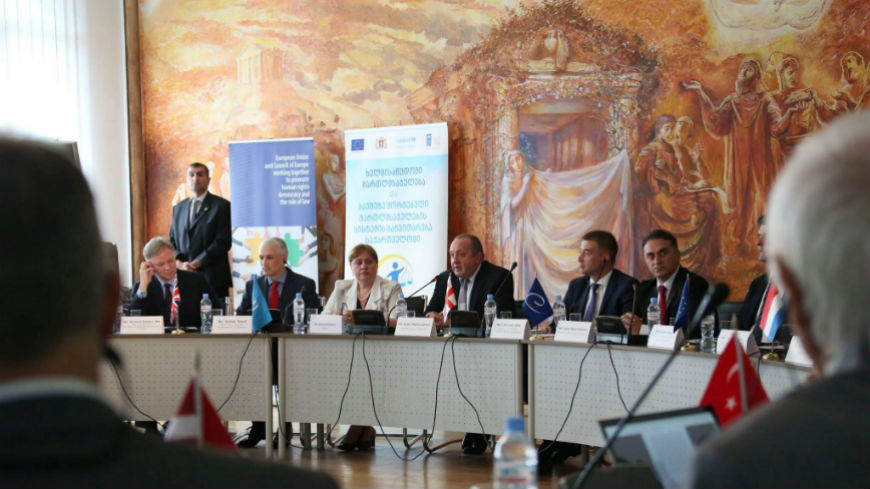The report of International Conference on the Independent, Qualified and Ethical Exercise of the Profession of Lawyers has just been published. The Conference took place on 20-21 June 2016 and was opened by the The President of Georgia, Giorgi Margvelashvili in Tbilisi
Inspired by the Recommendation Rec (2000)21 on the Freedom of exercise of the profession of lawyer, the Conference created a platform for open discussions, where challenges and best practices were shared amongst the sixty representatives of the Georgian and Bar Associations from 13 countries.
The report acts as an inventory of best practices developed and applied by Bar Associations from Armenia, Azerbaijan, Belarus, Georgia, France, Lithuania, Latvia, Luxembourg, Moldova, Romania, Russia, Poland and Turkey in the most important aspects of Bar Association’s mandates on lawyers ethics, training and lawyers rights.
This Conference was funded by the PCF Council of Europe-EU Project on “Support to the Georgian Bar Association” and the EU/UN Joint Project “Enhancing Access to Justice and Development of a Child-Friendly Justice System in Georgia”, in partnership with the Georgian Bar Association, Tbilisi State University and the Council of Bars and Law Societies of Europe.

